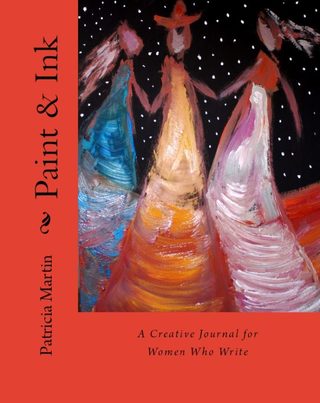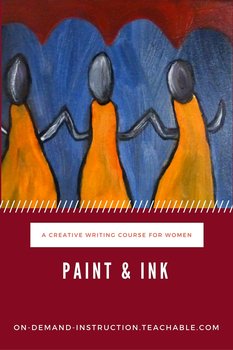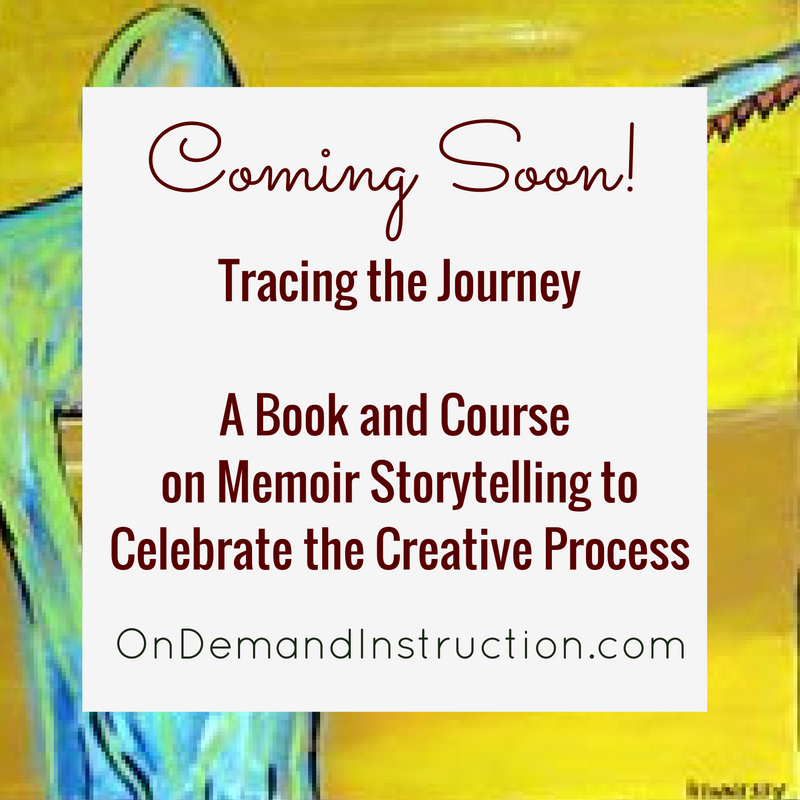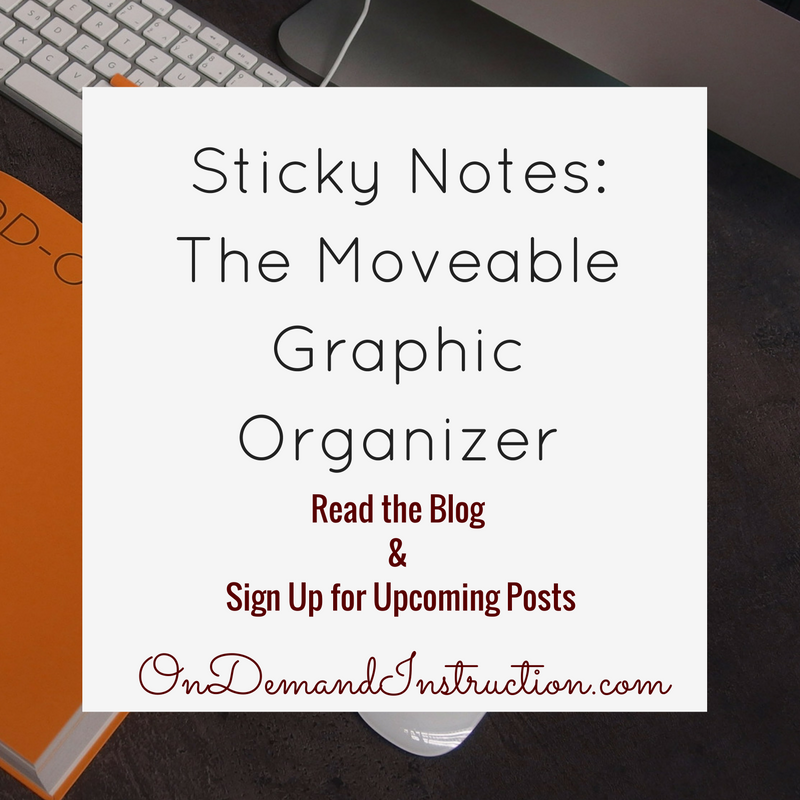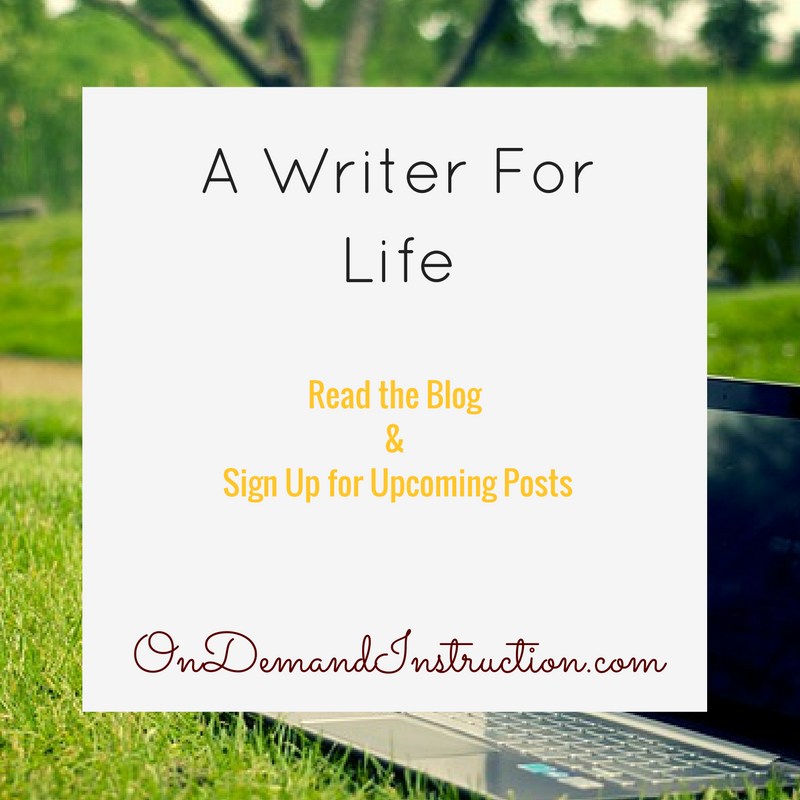|
Some folks designed the world to operate around their artistic endeavors. Their writing and art comes first, which is incredible. But for many of us, we lead lives that are so busy, so overwhelming, and so emotionally taxing that we put our personal creative needs to the side to get the work done.
When we finally break away from life for creative time, it envelopes like a bear hug from an old friend. Our time spent on creative pursuits--writing, photography, painting, gardening--is not just time well spent, it is the time we need to wash off the dust from the workaday world and refill our creative wells. |
So, what keeps a creative person balanced and productive?
- Set aside time at least once a week for creativity time. Honor that time.
- Write garbage. Write absolutely awful nonsense. That's how good writing begins.
- Use the writing process. It saves time.
- Pursue other creative endeavors. Paint. Garden. Photograph. Travel. Sing. Dance your fanny off.
- Read modern writers. You can't know what is happening with writing if you aren't reading the new stuff.
- Attend writing workshops and poetry readings. Yes, in person even.
- Read your writing aloud. It makes an incredible difference to hear your words cut across a room. You can sense their impact and begin to grow as a writer.
- Write emails and letters to living writers you admire. As a reader, it is your job to let writers know when they're kicking literary butt.
- Get a writer's notebook, pack it with you everywhere, and fill it with tidbits. Write down thoughts, haikus, observations, concerns, questions, and the like. That content will be invaluable when you sit down to write.
- If you normally write nonfiction, whip out some poems. If you normally write short fiction, write an essay. If you normally write screen plays, compose a memoir. Breaking out of your normal writing habits can stimulate growth and insight into your own writing process.
- Read. Read an article each morning. Read a chapter each evening. Without consistent reading, your writing will not come as smoothly as it should. Great readers make better writers.
- Put up visual reminders to stay on track with your writing. You don't have to tattoo "Did You Write Today" on your arm, but a well-placed sticky note could do the trick. Little reminders can help keep your creative purpose at the forefront of your day.
- Acknowledge publicly that you are a writer. You are not pretending to be a writer. You are not a writer in disguise as a dentist, a taxi driver, a teacher, or a machine operator. You are a writer. Just because you pay your bills with one profession does not diminish the fact that you ARE a writer.
- Create an introduction for yourself. It takes three lines: state your calling, explain what your current project is, describe it briefly. "I'm Patricia and I'm a narrative poet. Right now I'm working on a series about insects that wronged me. The piece I'm working on now is an ode to a dead wasp because the bastard bit me twice before I caught him in a mason jar." That is the kind of talk that will put lightning in your coffee.
- Sign up for a writing workshop. Yes, I know it feels wasteful to spend the money on yourself. Yes, I know that you feel inferior to the Hemingways and Austens who are certain to attend. Do it anyway. You'll quickly find out how dearly that other writers want to support each other.
- Find a writing partner. Make a time to meet with this person once a week. Meet at a coffee shop or library. Do not speak. Write. Repeat at your next writing time. This creates accountability in your writing schedule.
- If you are unclear on the rules to grammar, spelling, punctuation, and mechanics, learn them. I know it feels like a return to junior high school, but you really need to know the rules before you break them.
- Find blogs about books, reading, and writing, and follow them. Read them, comment on them, and reach out to the bloggers who manage those blogs. Ask questions, ask for guidance, and develop your craft.
- Find a writing mentor. Locate someone who is willing to work with you to support you as you develop your craft to its full potential. This may an agent, a writing partner, or a writing critique group. Whoever it is, this person (persons) must have in mind the purpose of helping you to drive your writing to a higher point.
- Finally, just write. Writers write. I know you have heard all of these before, including this one, but it is true. You cannot be a writer if you are not putting the pencil to the paper. Write. I know it's hard. Do it anyway. It pays off by giving you a clear mind, a peaceful heart, an inner calm, and a spiritual balance that only engaging in your true calling can do.
Paint & Ink~BookA terrific first step to awakening one’s creativity is to journal. By journaling, we allow ourselves to write, think, and feel without pressure to be perfect. We do not have to worry about constructing stories that will be published or even seen by others. While journaling, we can create the writing that will allow us to explore and experiment. When a person has not written or been creative in a while, journaling can be just the thing to reignite the creative spark. |
Paint & Ink~CoursePaint & Ink will take writers through a series of writing prompts to reinvigorate writers and creatives. Get back into the swing of writing through a comfortable journaling process that uses art, reflection, and guided activities to jump start ideas. Paint & Ink includes 20 videos each focused on a different topic, including looking back at previous experiences, inventing new scenarios, and visualizing fresh, realistic characters and settings. Writers will cover all aspects of the narrative including: plot, character, setting, pacing, dialogue, mood, tone, and style. Writers have the opportunity to delve deeply into their own experiences or create anew with a fresh creative perspective.
|
Coming Soon!The creative in all of us starts out as a little kid scribbling down images and words as a fun past time. Over the years, we mature and grow to love artistic endeavors for the mindfulness, mental balance, and inspiration it allots us. Take a walk down your own creative path with this engaging creative journal book and course. Coming in late 2016.
|


